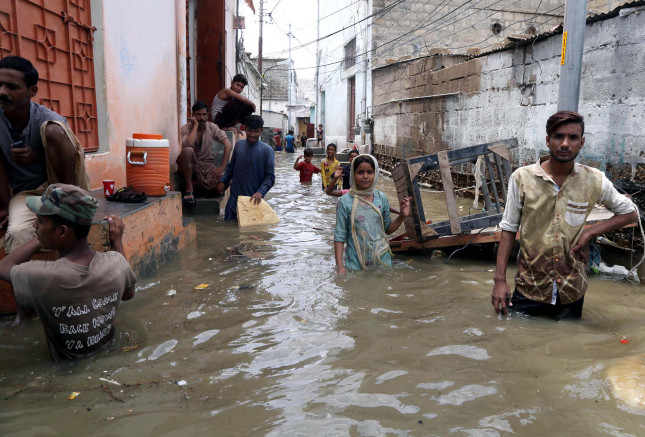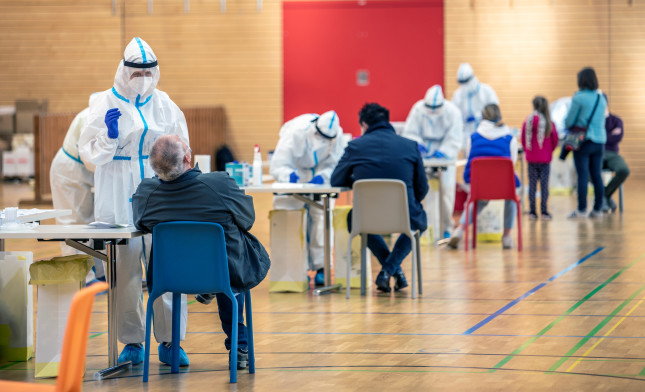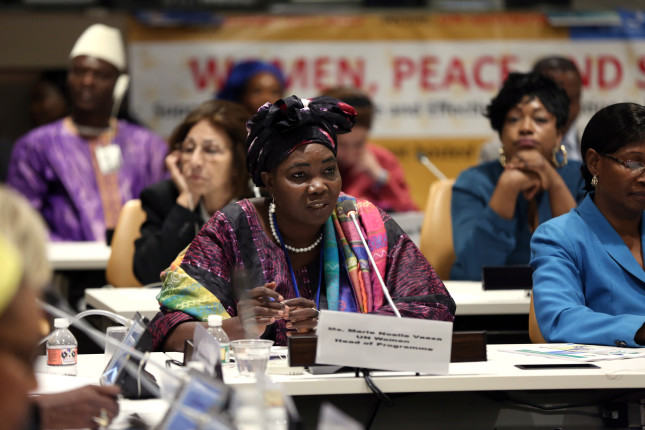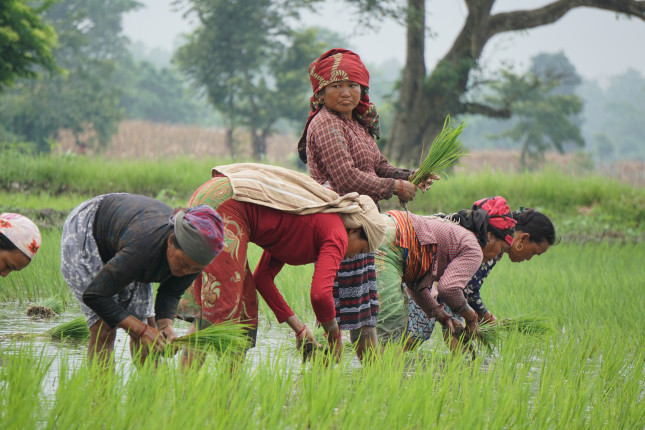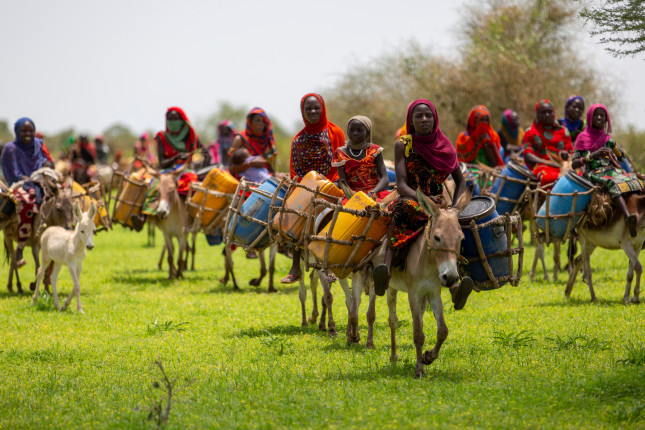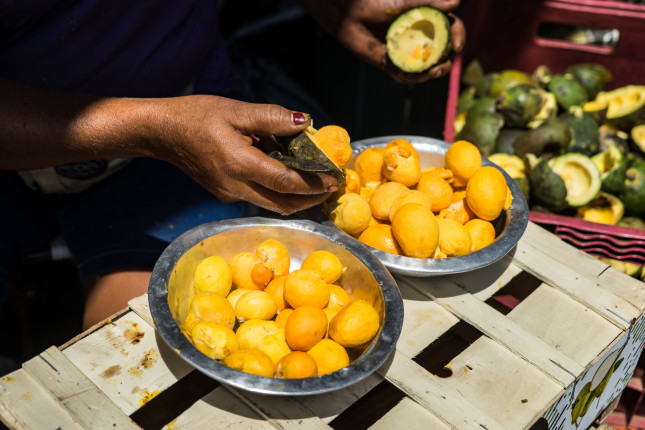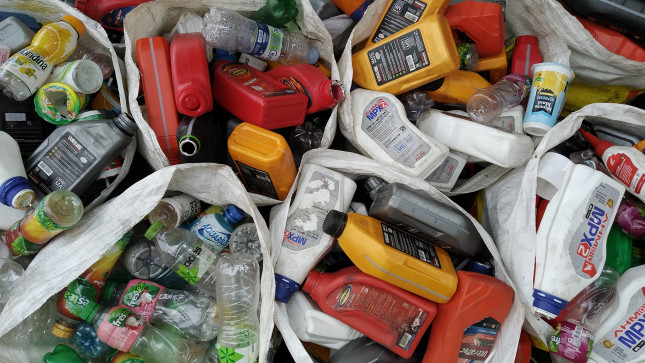-
A Land Like No Other: Afghanistan’s Post-Conflict Ecotourism Potential
›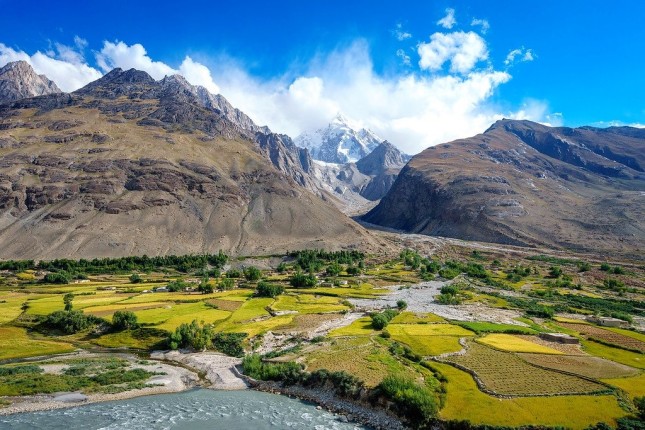
Stunning cobalt-blue lakes with natural travertine dams in Band-e-Amir, the pristine, soaring Pamir Mountains, through which some of the world’s last snow leopards prowl—far from the simplistic, violent, and drab images preferred by the media, Afghanistan is a beautiful and multifaceted nation. Lonely Planet once described Afghanistan as a “vastly appealing country.” Having married into an Afghan family many years ago, I can attest that the culture is also extremely hospitable. Welcoming tourists to visit their beautiful nation is a logical extension of the Afghan culture.
-
Michael Kugelman, The Third Pole
Why was Pakistan Left out of Biden’s Climate Summit?
›April 8, 2021 // By Wilson Center Staff
Given that Pakistan is one of the most climate-vulnerable countries in the world, Washington shouldn’t write it out of the climate change cooperation script
The White House has announced the names of 40 world leaders invited by US President Joe Biden to participate in a virtual global climate summit on April 22-23. Many Pakistanis are unhappy – and with good reason – that Prime Minister Imran Khan isn’t on the list.
-
Creating a New Normal with a New Global Public Health System
›
“Ask a big enough question, and you need more than one discipline to answer it,” said modern dance legend Liz Lerman.
As the COVID-19 pandemic spread across the globe, the World Health Organization (WHO) warned that there would be no going back to normal. They knew a failure to make timely and accurate public health decisions for a pandemic would prove to be the “difference between life and death.” How correct they were.
-
Smart Power: Leveraging the Women, Peace, and Security Agenda
›
“Without women and empowering women, there will be no peace,” said Dr. Valerie Hudson, Distinguished Professor and George H.W. Bush Chair at Texas A&M University. Hudson spoke at an event by the United States Institute of Peace (USIP) and the United States Department of Defense (DoD) in collaboration with the United States Civil Society Working Group on Women, Peace, and Security (U.S. CSWG). The event focused on how the United States can leverage the United Nation’s Women, Peace, and Security (WPS) agenda to advance gender equality and promote peace worldwide.
-
Embracing Risk: Lessons Learned from Integrating Climate Adaptation and Biodiversity Conservation in Nepal
›
The Hariyo Ban Program is one of the best examples of a sustainable development initiative that I’ve ever seen, said Nik Sekhran, Chief Conservation Officer of the World Wildlife Fund-US during a recent Wilson Center event on lessons learned from a decade of building resilience through participatory and inclusive natural resource management, climate adaptation, and biodiversity conservation in Nepal.
-
No Peace Without Water, No Water Without Peace, and Neither Without Women’s Empowerment
›
Water deprivation is increasingly recognized as a political and security problem. Tensions resulting from the growing imbalance between global water demand and supply can escalate into conflict. Efforts to solve water-related conflicts and promote water cooperation for peace, termed “water diplomacy” or “hydro-diplomacy,” continue to be male-dominated. Several recent events and related publications are contributing to bridging this persistent gender gap.
-
Sharon Guynup, Mongabay
Can ‘Slow Food’ save Brazil’s fast-vanishing Cerrado savanna?
›April 2, 2021 // By Wilson Center Staff
It’s November in southeast Brazil, and the tall, feathery macaúba palms (Acrocomia aculeata) are beginning to drop ripe coconuts. By January, the ground is littered with them, as some 67 families that live nearby, outside the town of Jaboticatubas, get to work dragging the trove home.
This coconut serves as the lifeblood for these traditional farming communities in the Cerrado savanna in Minas Gerais state, Brazil. Archaeological sites trace its use back to at least 9,000 B.C.
Every part of the all-purpose coconut is used, from its delicious yellowish flesh to the nut at its core. It’s a favorite kids’ snack, and is used to make a highly nutritious flour, baked into bread and cookies. Livestock eat it too.
-
Building an On-ramp for Catalytic Capital to Reduce Plastic Leakage: Q&A with Circulate Capital’s April Crow
›Back in 2005, as a part of the Coca-Cola Company Environmental Team, April Crow was a pioneer working on the concept of sustainable packaging. In the mid-2000s, despite stories on the great pacific garbage patch, ocean plastic waste was not high on policy or corporate agendas. April believed this was due to a lack of scientific data on the scale and threat of plastic waste. To fill this gap, April’s team partnered with Ocean Conservancy to convene leading scientists to help fill these knowledge gaps. Their research found the majority of marine plastic pollution stemmed from five Asian countries that lacked waste management infrastructure, which if fully in place, could reduce leakage by 45 percent. This insight raised a challenging question—how can companies and aid agencies bring funding to these markets to facilitate better infrastructure and prevent plastic leakage?
Showing posts from category *Main.


